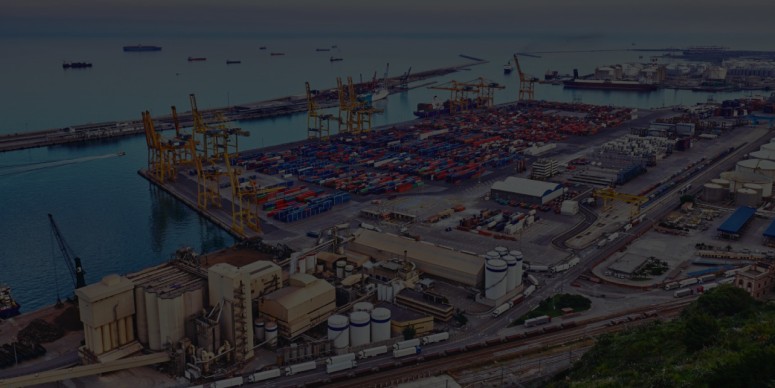In today's post, we explore blockchain in the shipping industry and the biggest changes it has brought along.
Blockchain and supply chain (besides rhyming) seem to go together in many ventures of transporting goods. At least, that’s what the news feed of the last months reveals:
shipping beef from USA to Japan with all the guarantees,
Walmart Canada using IoT-blockchain system to reduce shipping discrepancies, or
shipping giants piloting blockchain to improve efficiency are just some cases making it into the headlines in the past six months.
In today’s post, we’re going to take a closer look at different processes in a shipping journey that could be sped up by implementing blockchain technology.Blockchain
holds an important place in the bigger picture of the logistics and supply chain that international shipping is part of. In a
recent blog post, our professor Daniel Diemers underlined it as one of the fields after the financial industry itself that would start to run on the blockchain and to bring efficiency. In order to grasp the vast field of blockchain industry applications' opportunities in Logistics, Daniel proposes two start-ups as an example that you can also check out: Skycell and Blockfreight.When we
last went over how blockchain could breathe new life into moving goods from A to B, we already made some observations about Maersk. With the help of IBM, this integrated logistics company has sailed off to become the flagship of implementing blockchain into global shipping.
TradeLens - developed jointly by Moeller-Maersk and IBM - is a blockchain-based digital container logistics platform. And it’s precisely that that has allowed Maersk to power all-digital workflows and become one of the big players in the global blockchain in the logistics market.Statista has estimated that
the trade and logistics addressable market is about $5.6 tr. As we all know, in its essence, it’s about moving things from A to B and the stakeholders who intervene in the moving of these goods: exporters/importers, the forwarders or companies that work on sea, land or air to transport, the facilities and infrastructure where the cargo passes through (ports, warehouses, logistics centers), regulators and tax & customs collectors and, finally, banks.
So, an average supply chain consists of all those different stakeholders and a long list of activities that have to be carried out for the delivery to arrive at its final destination. And as it happens, along the way there are many aspects where
blockchain could be used to bring efficiency. In order to grasp the vast field of blockchain industry applications' opportunities in Logistics, Daniel proposes two start-ups as an example.
Skycell is a startup that dedicates itself to the
shipment of delicate goods in blockchain-tracked containers. It is mainly used for medical goods. All the track data is registered on blockchain: the temperature, when it’s opened, etc. to give the end-user a guarantee that nothing has been tampered with.
Founded in 2017 and currently operating in San Francisco, Melbourne, Hong Kong and Shangai,
Blockfreight applies
blockchain to international container handling. Its potential users are all parties related to international shipping and logistics as it offers them a comfortable and secure way to check the status data of a container (location, weight, content, next destination, etc.) in real-time and reliably.
Start your learning journey and get involved in the Blockchain Revolution!
